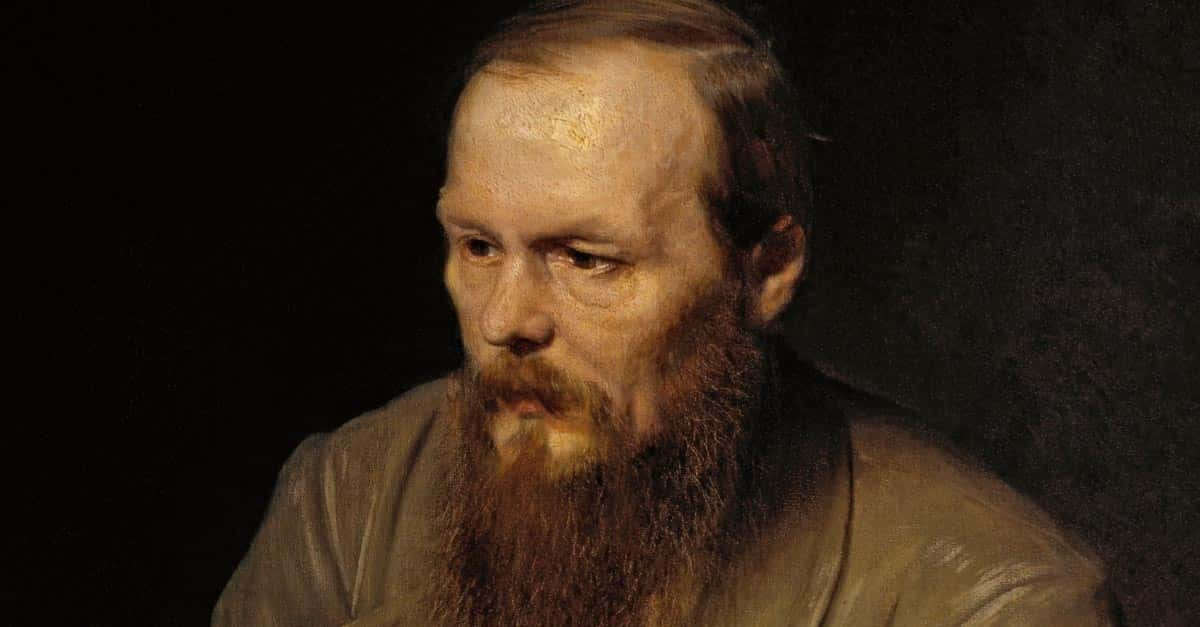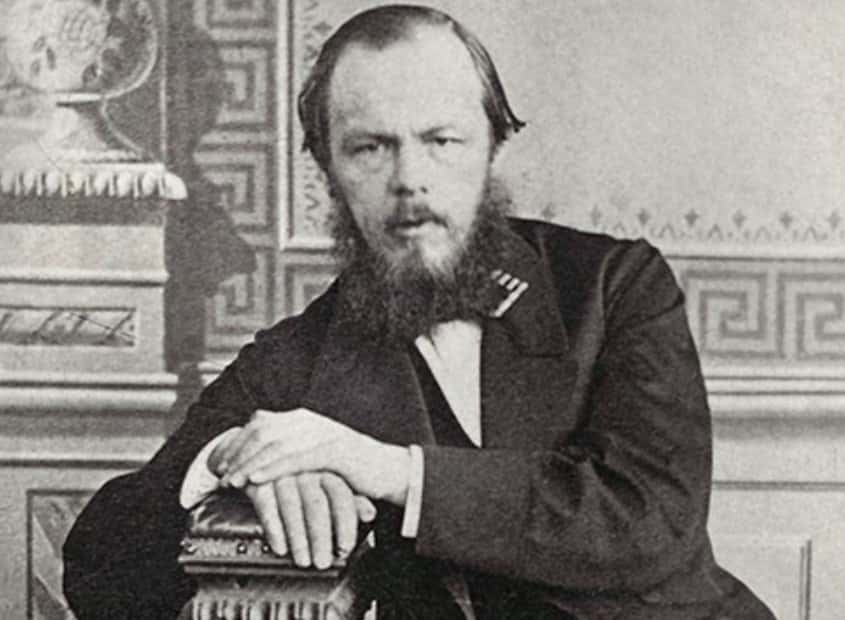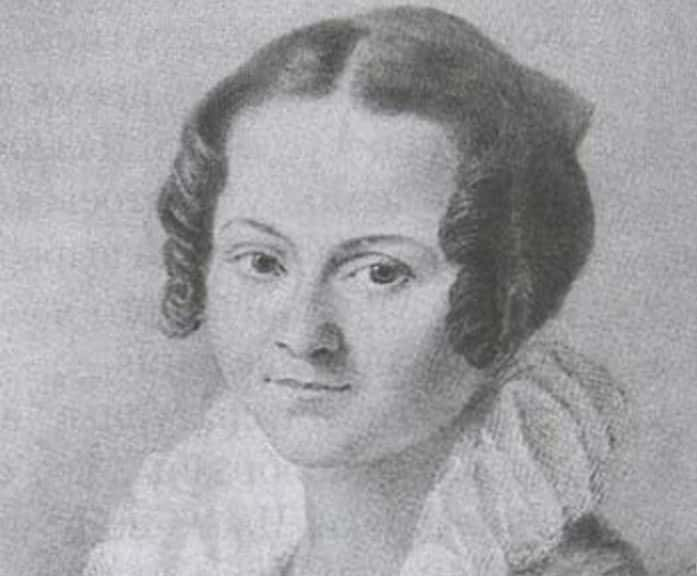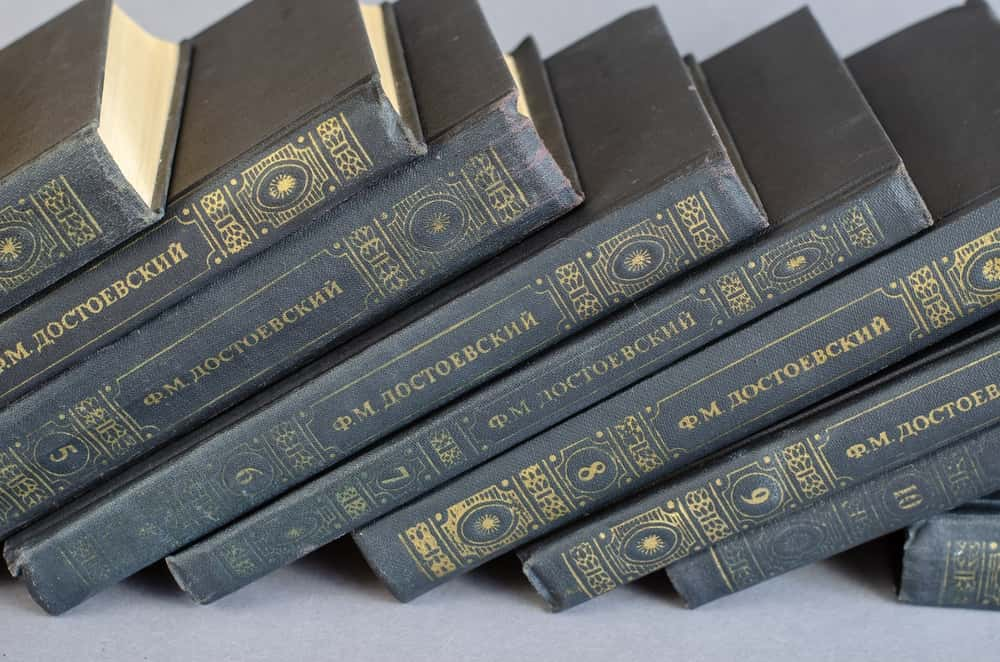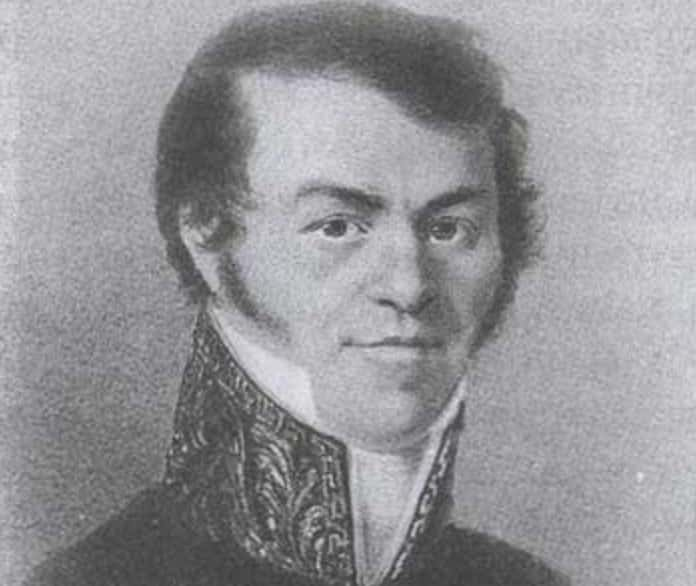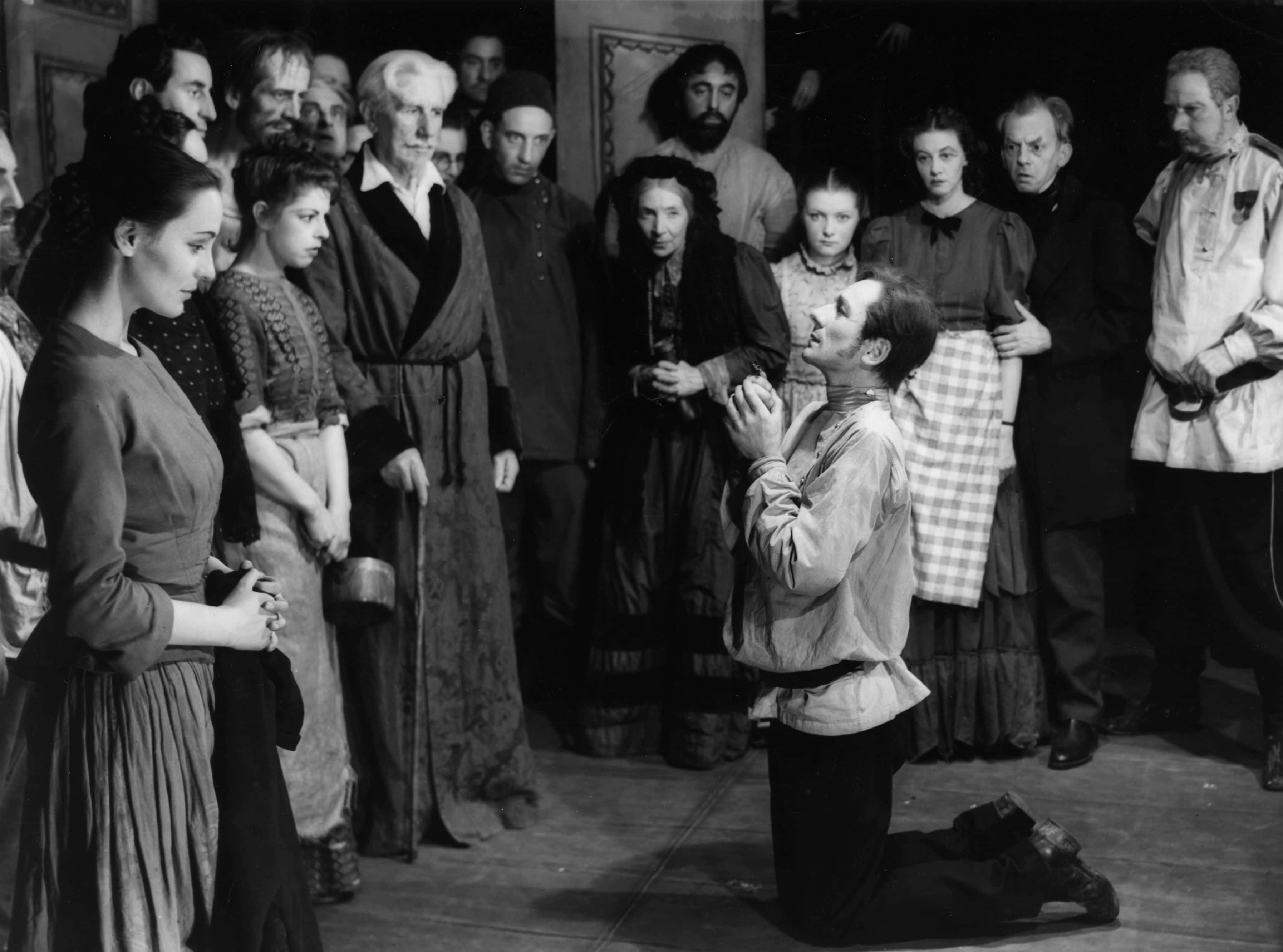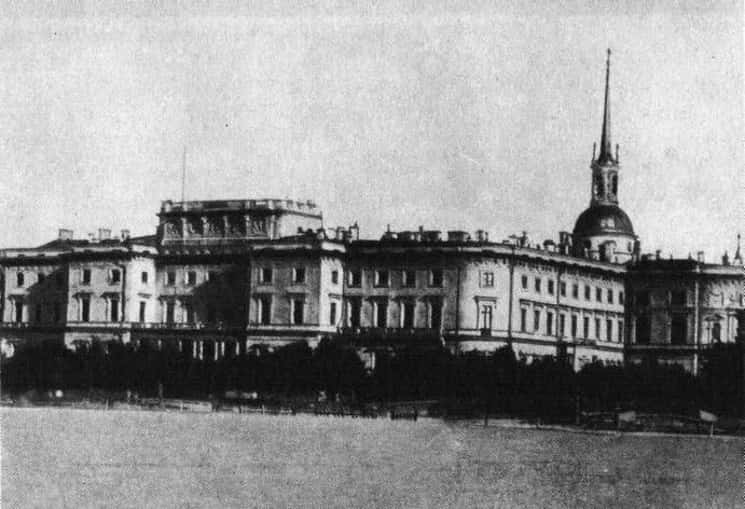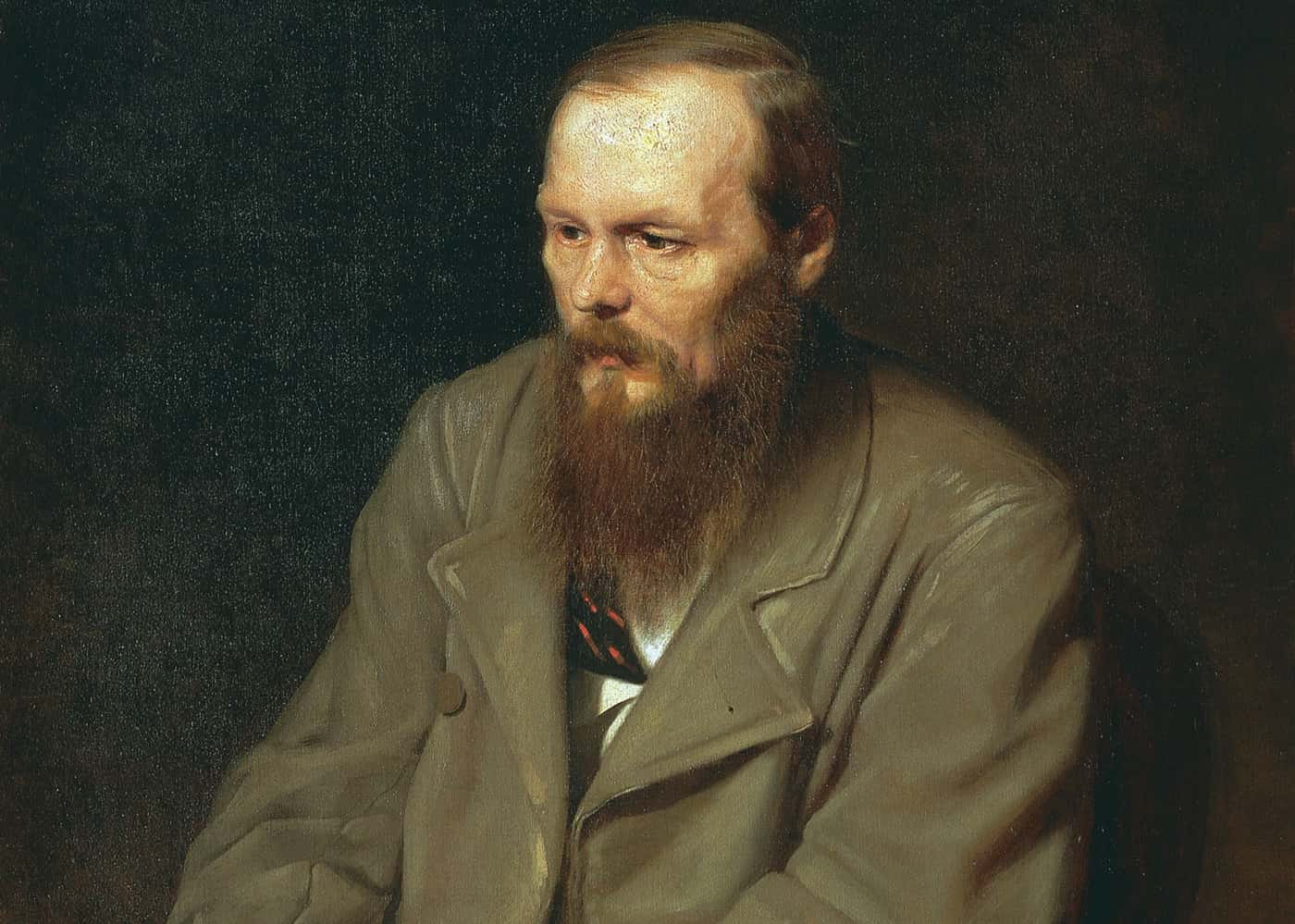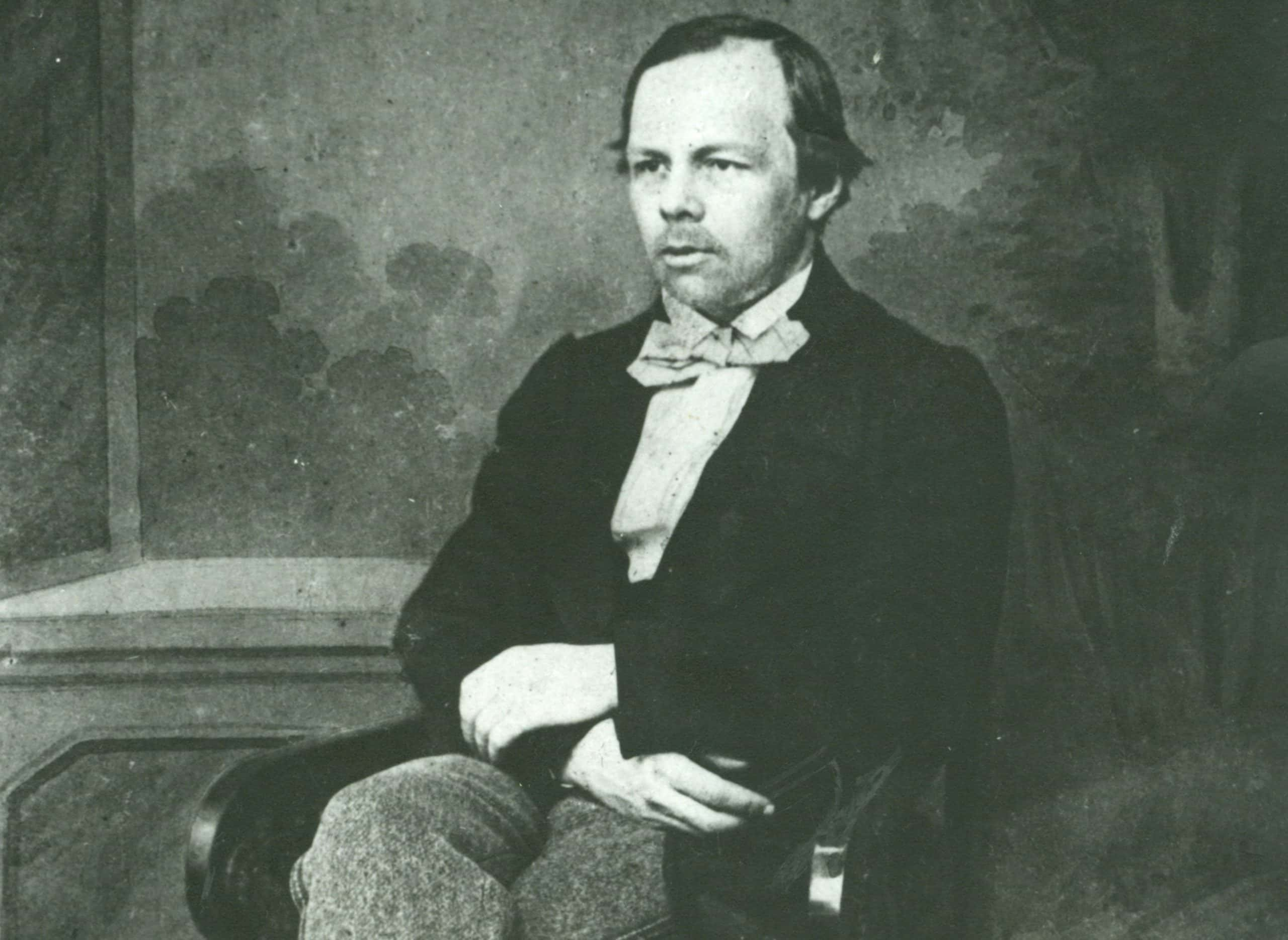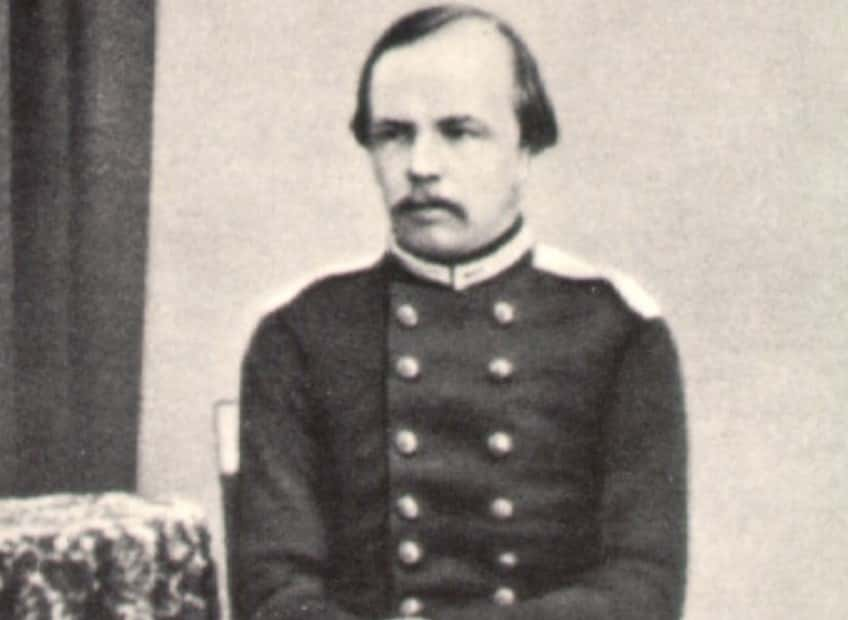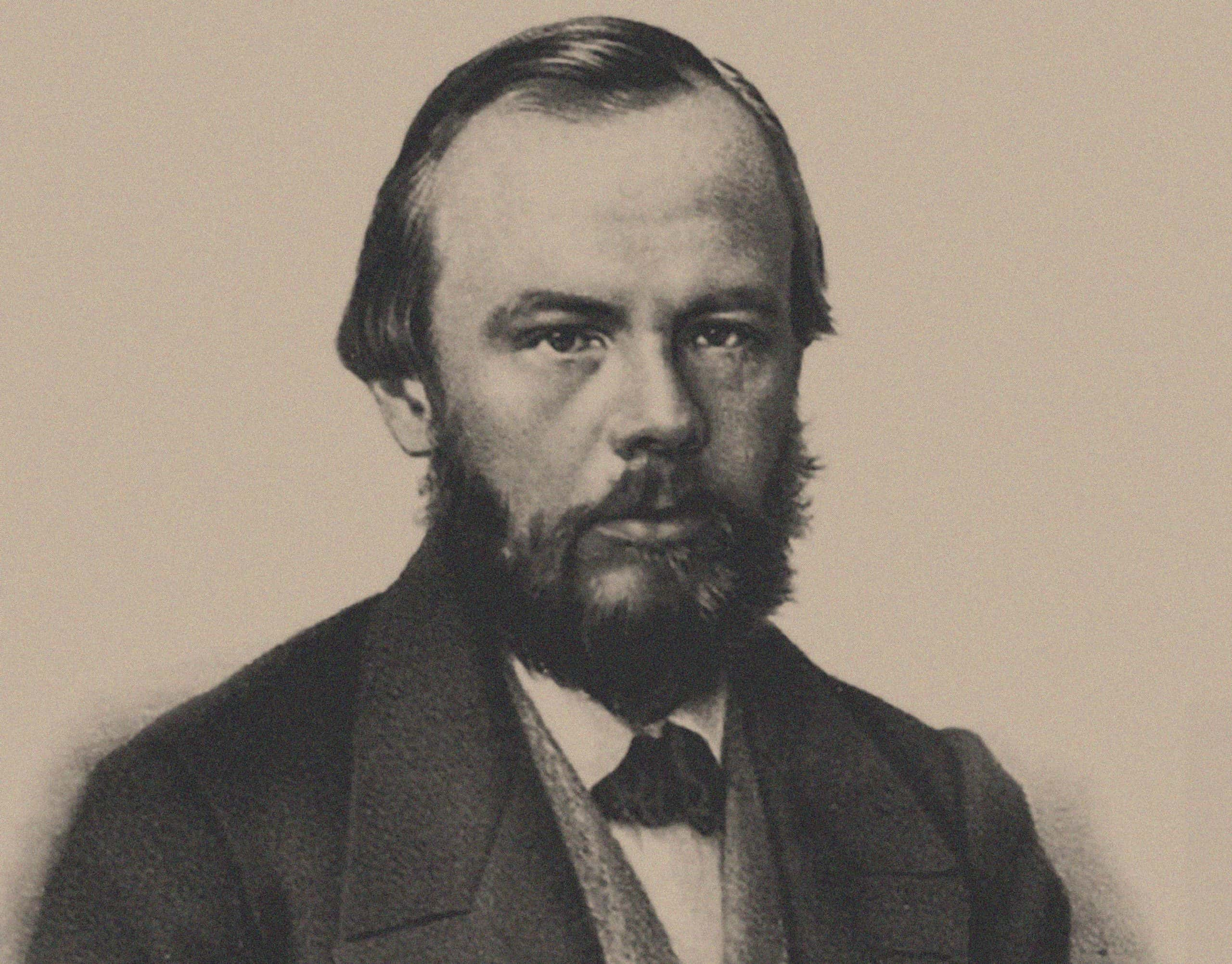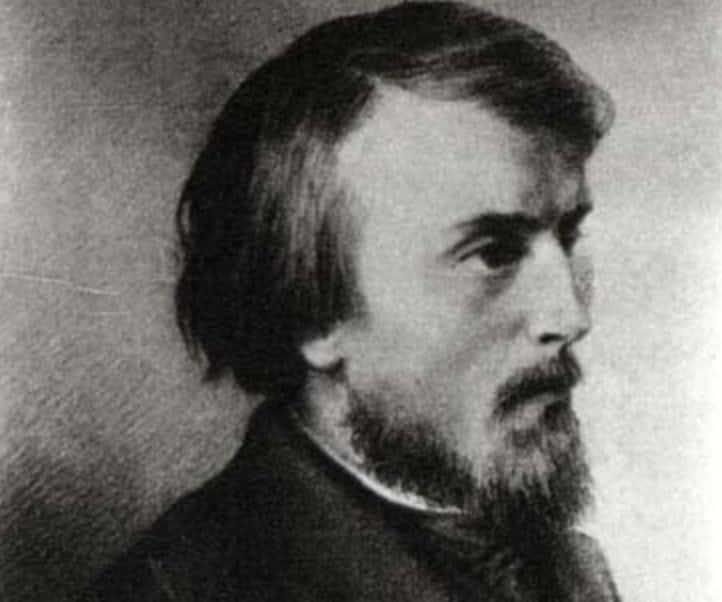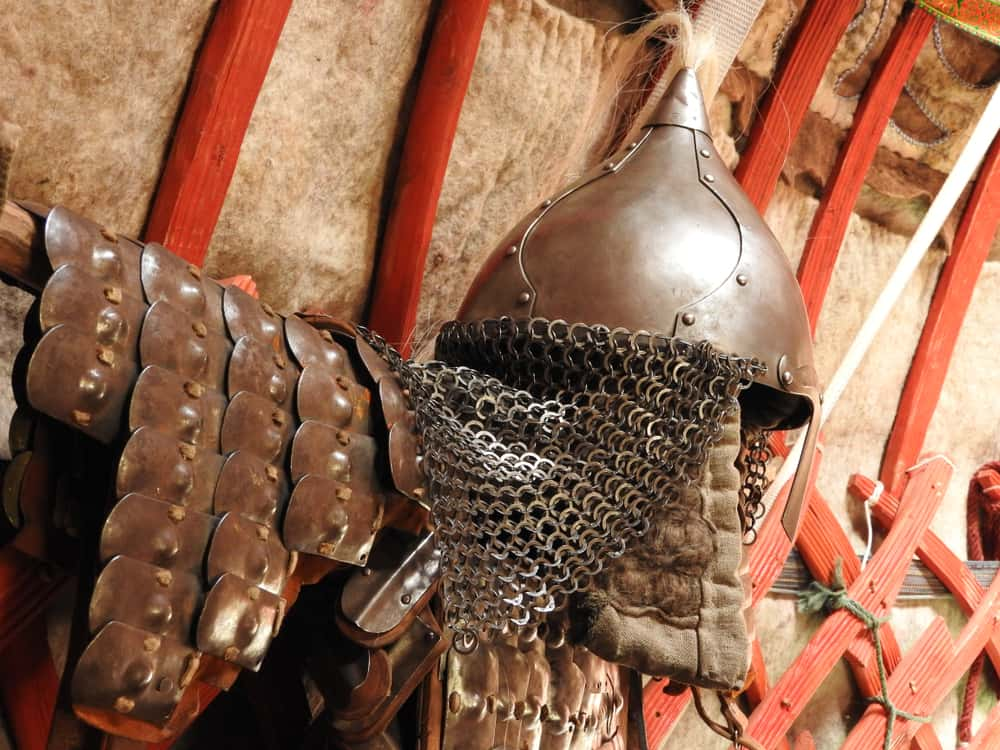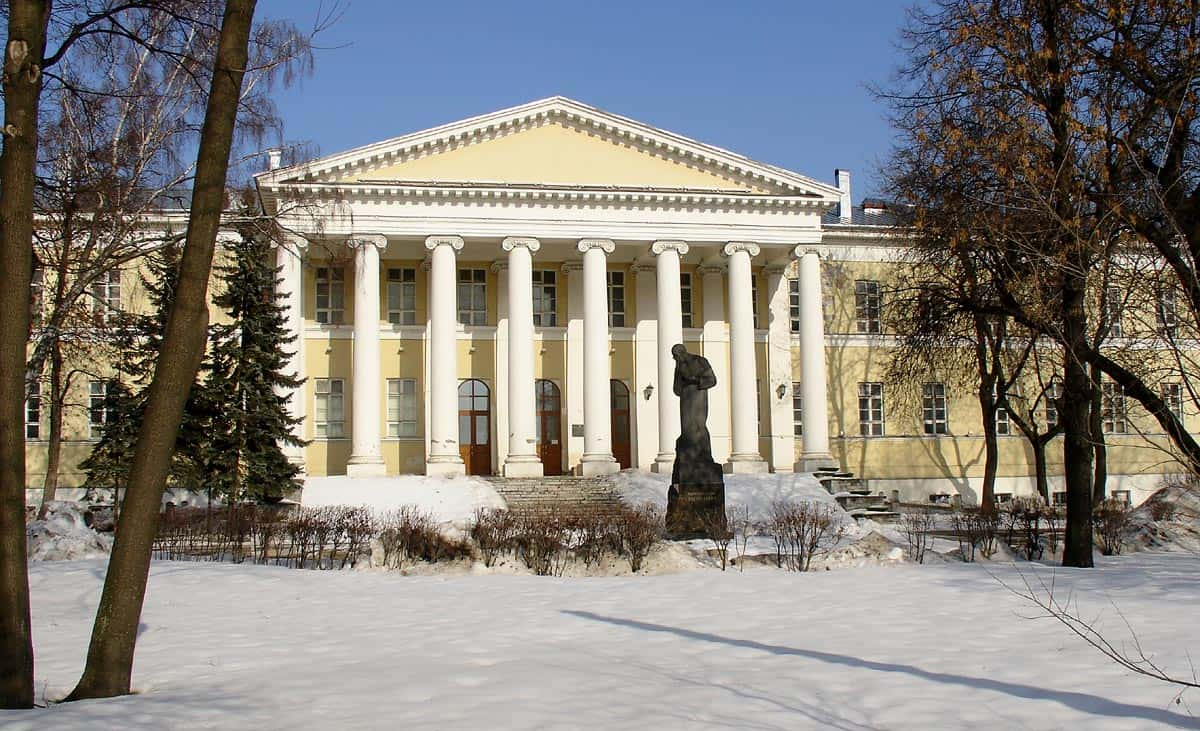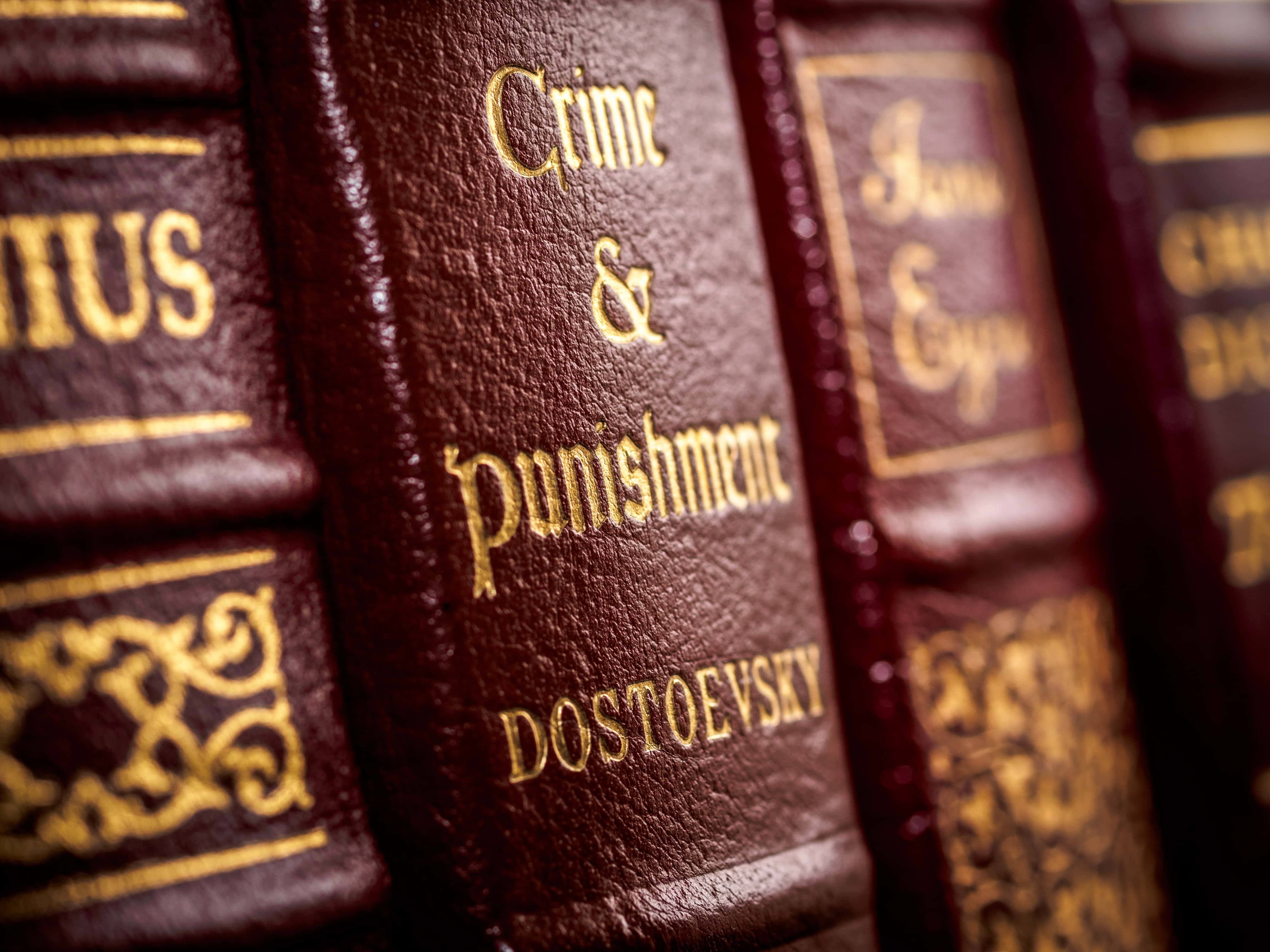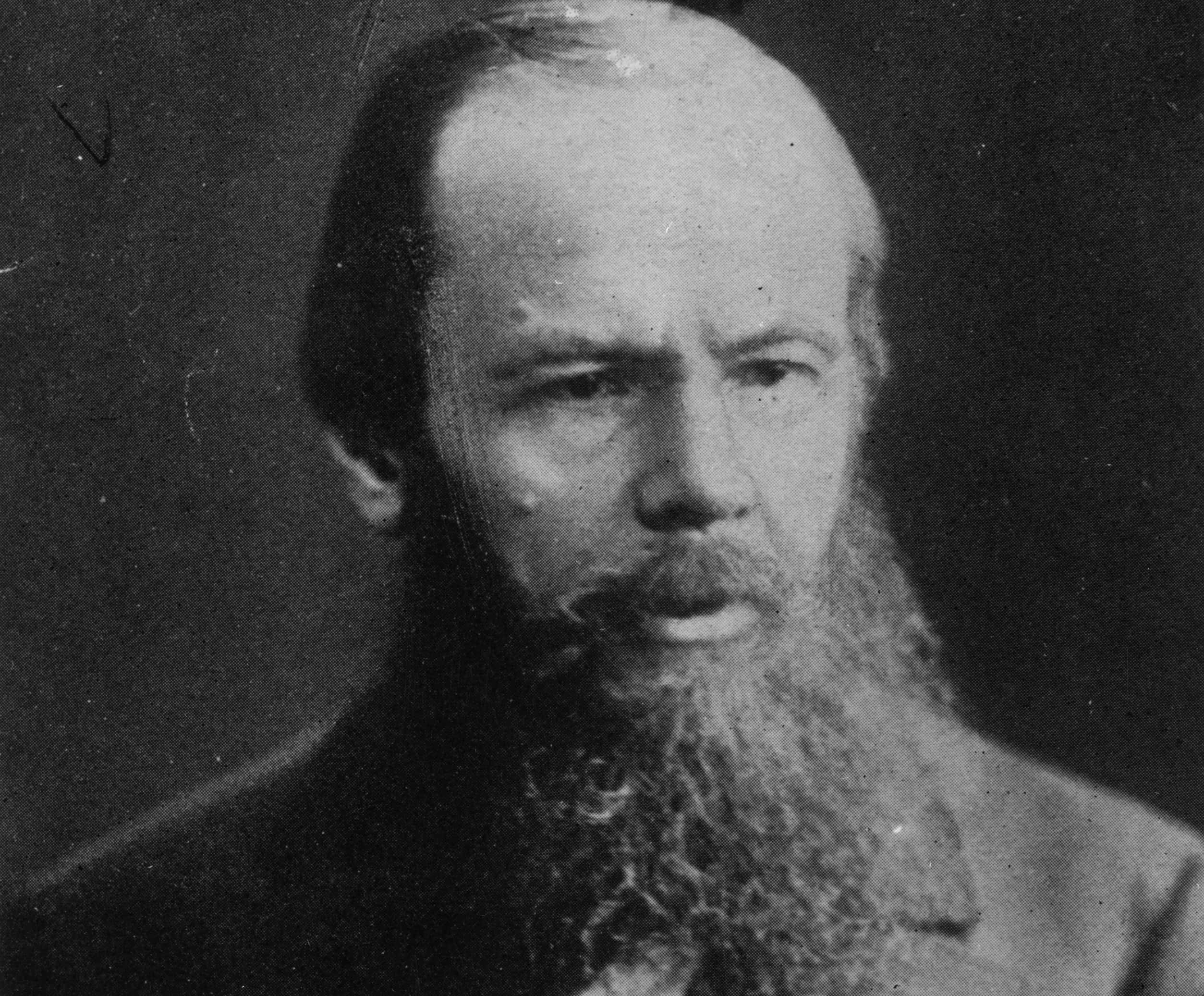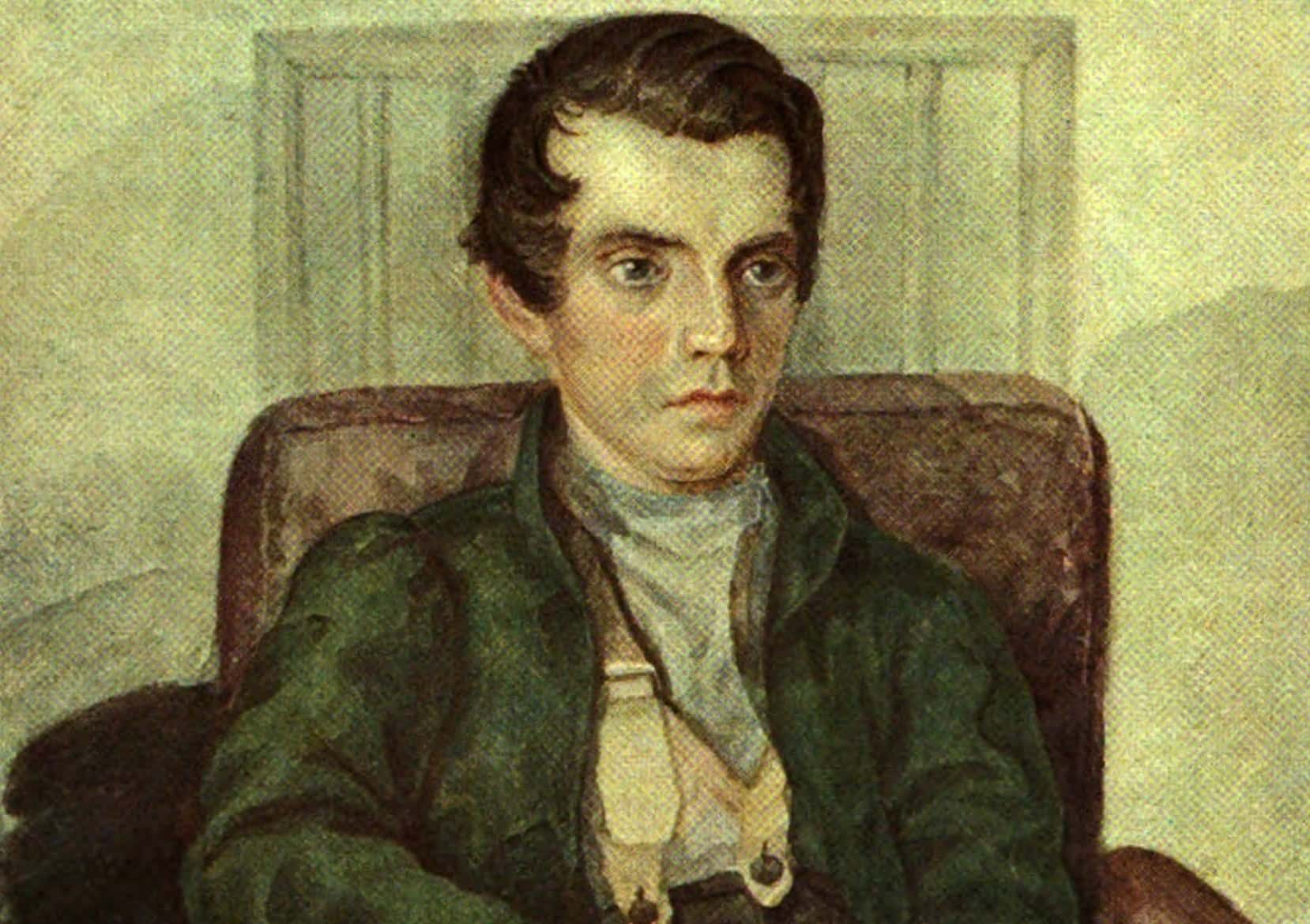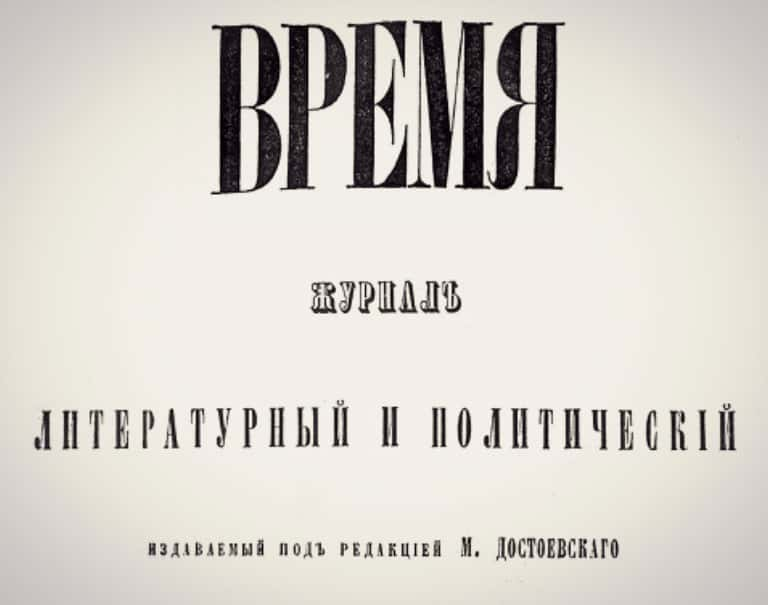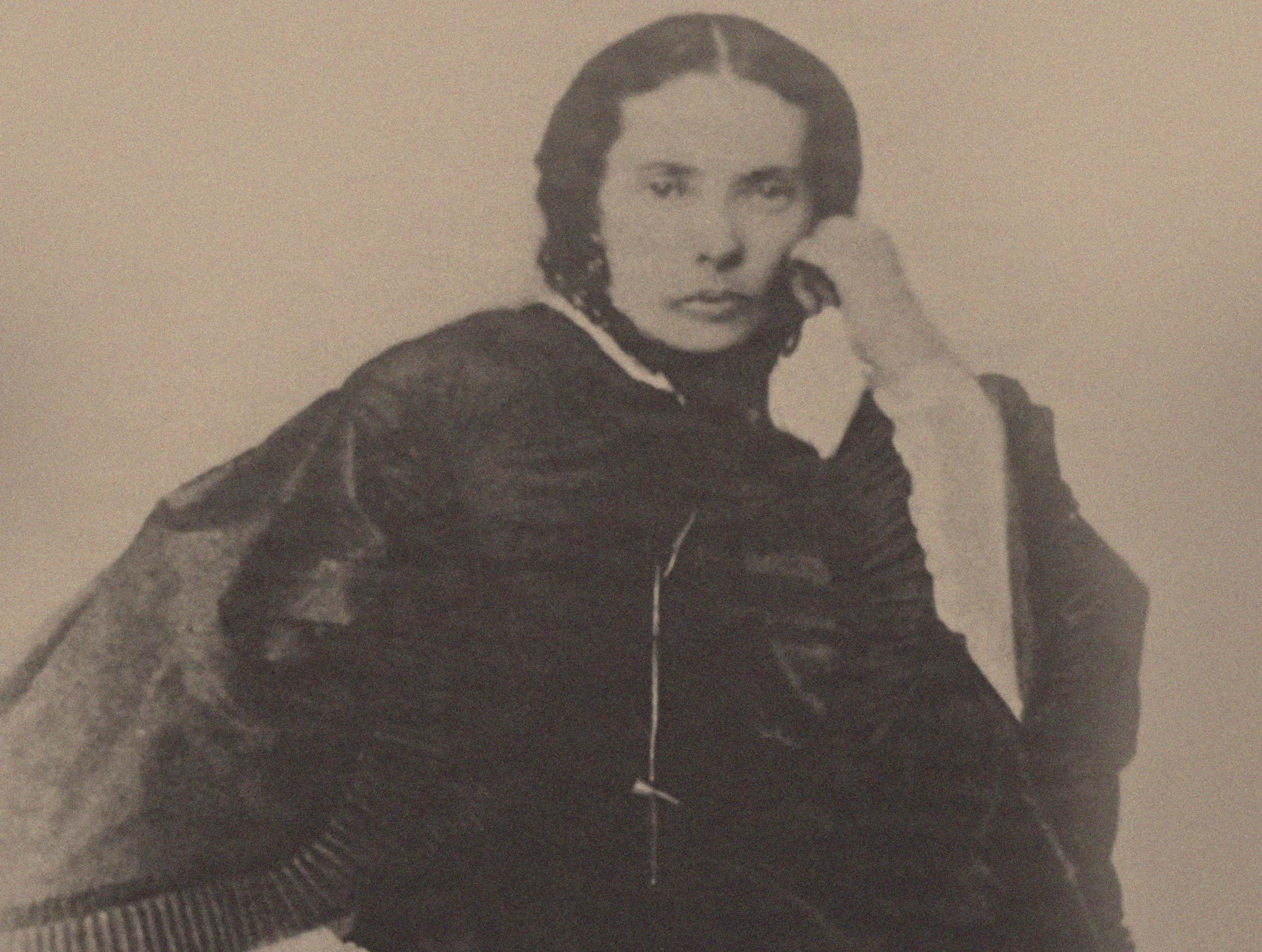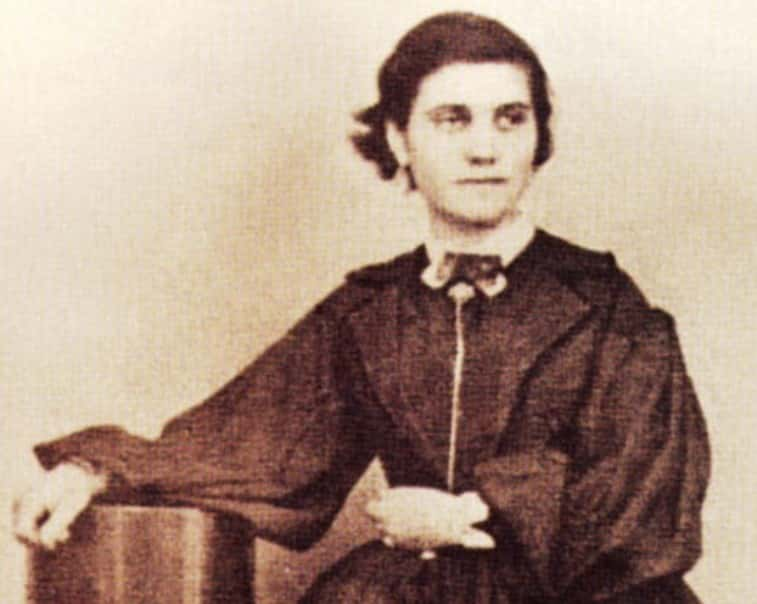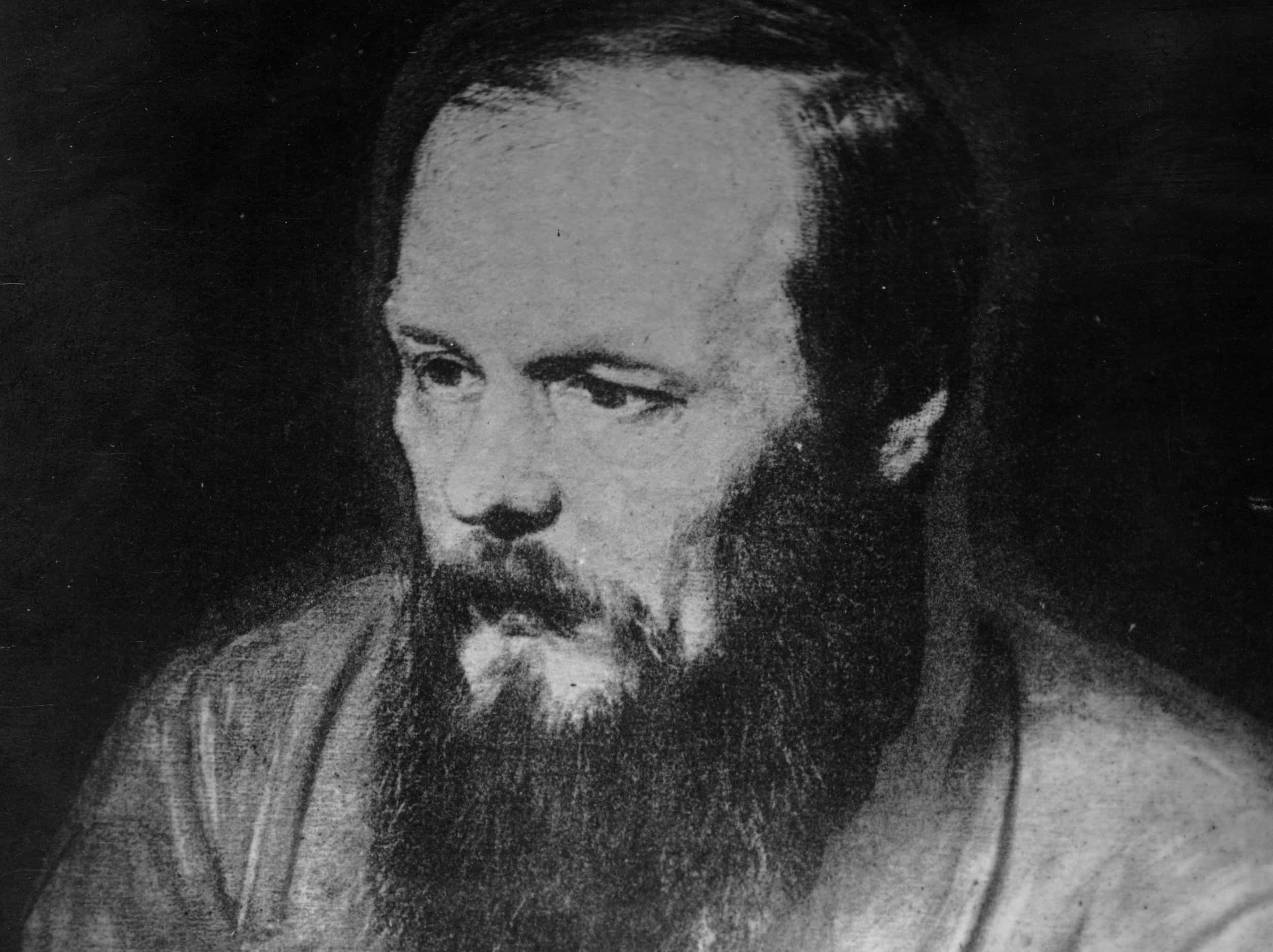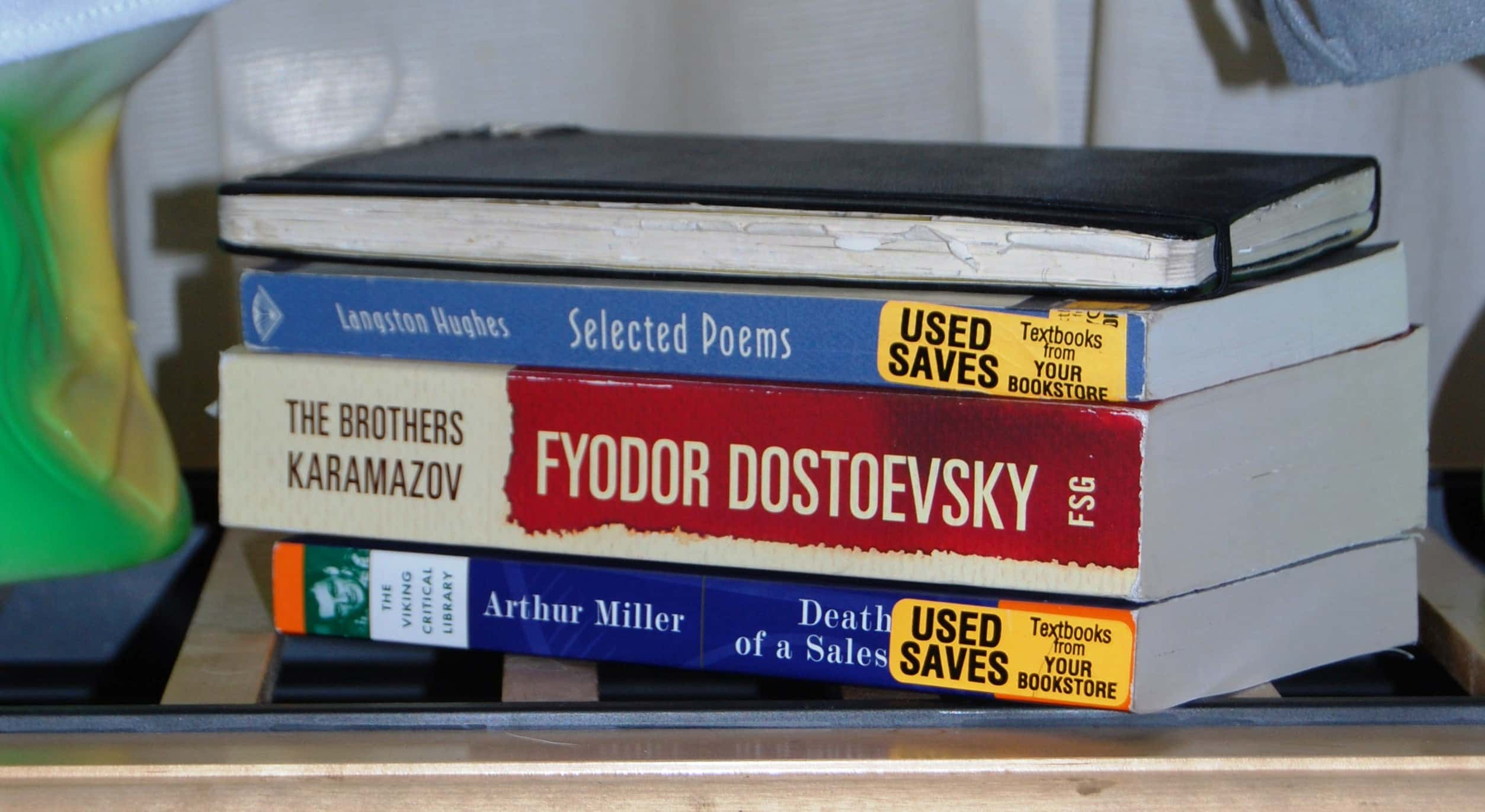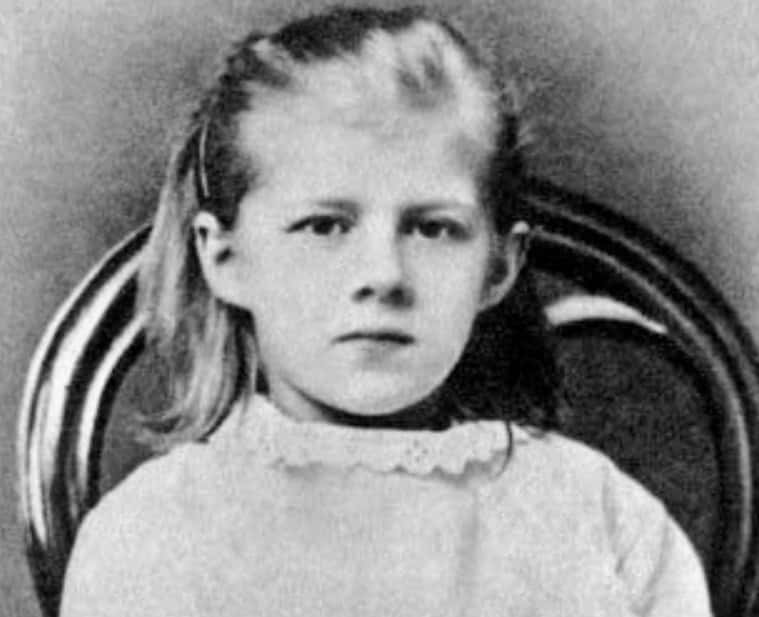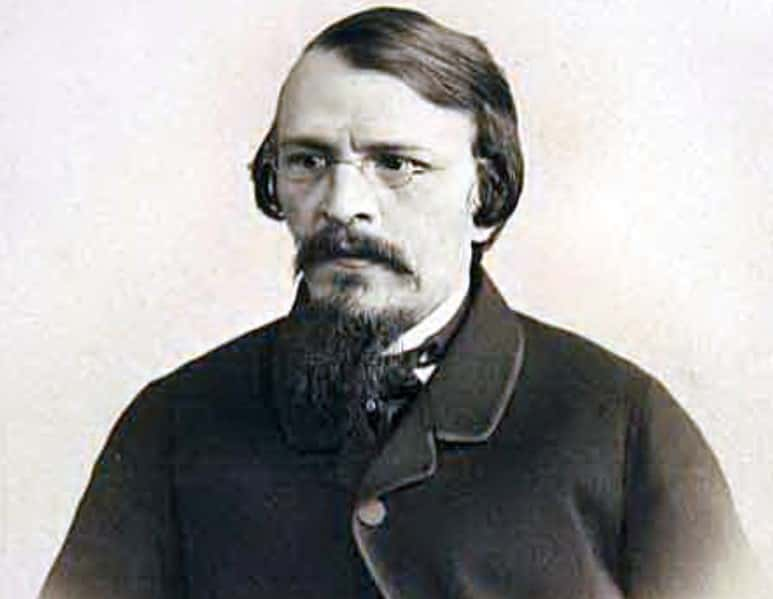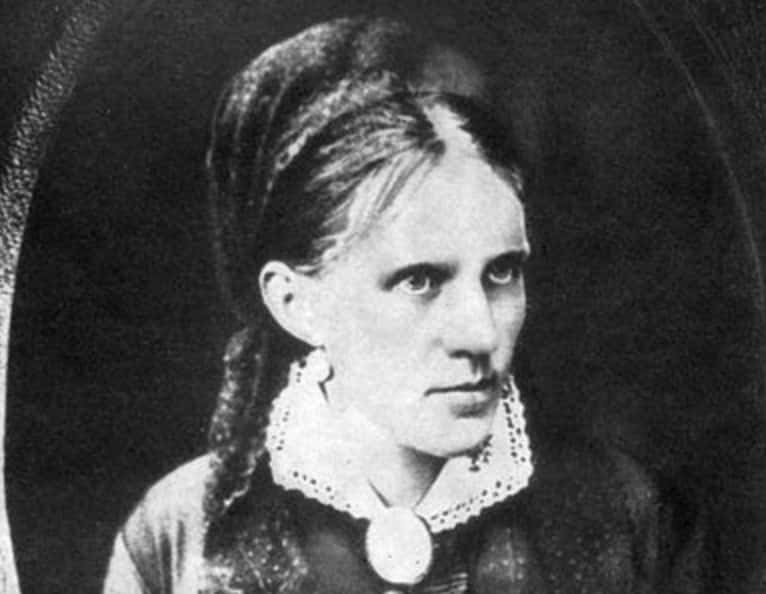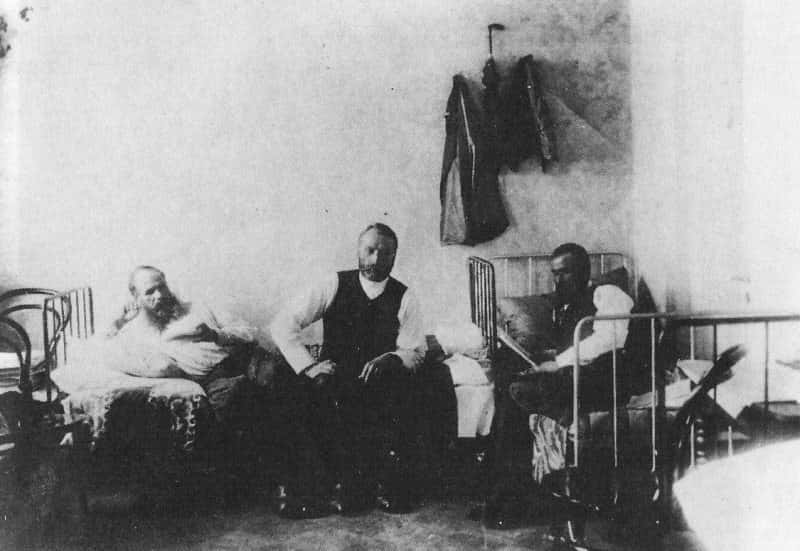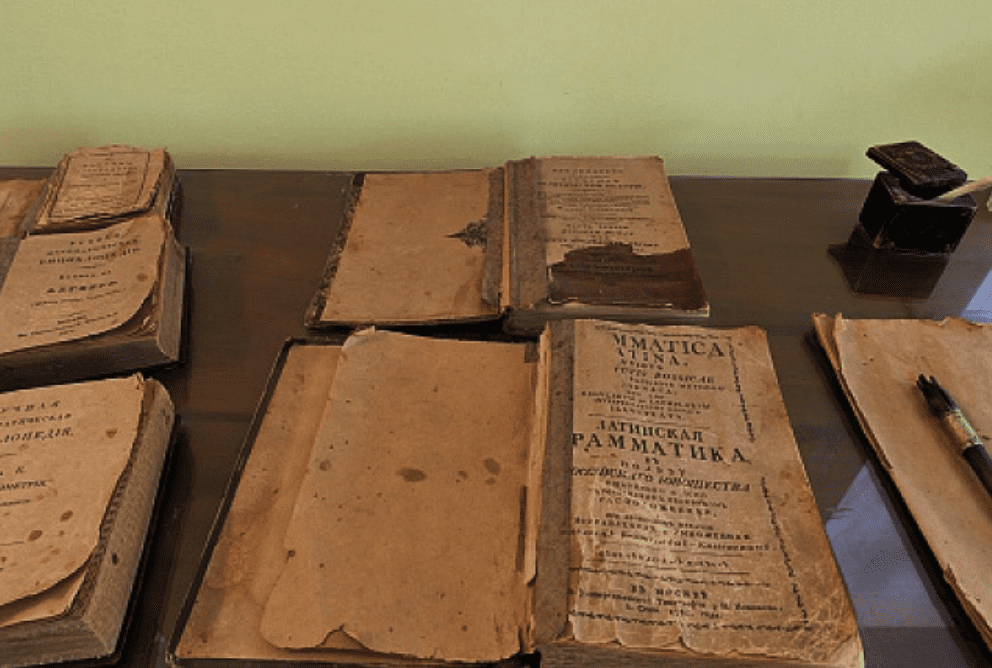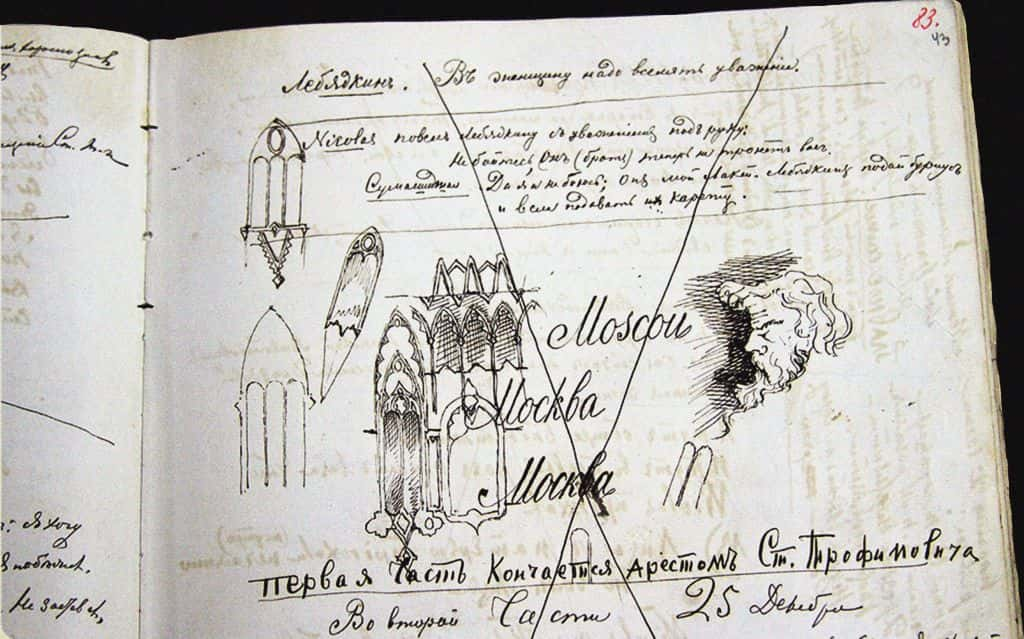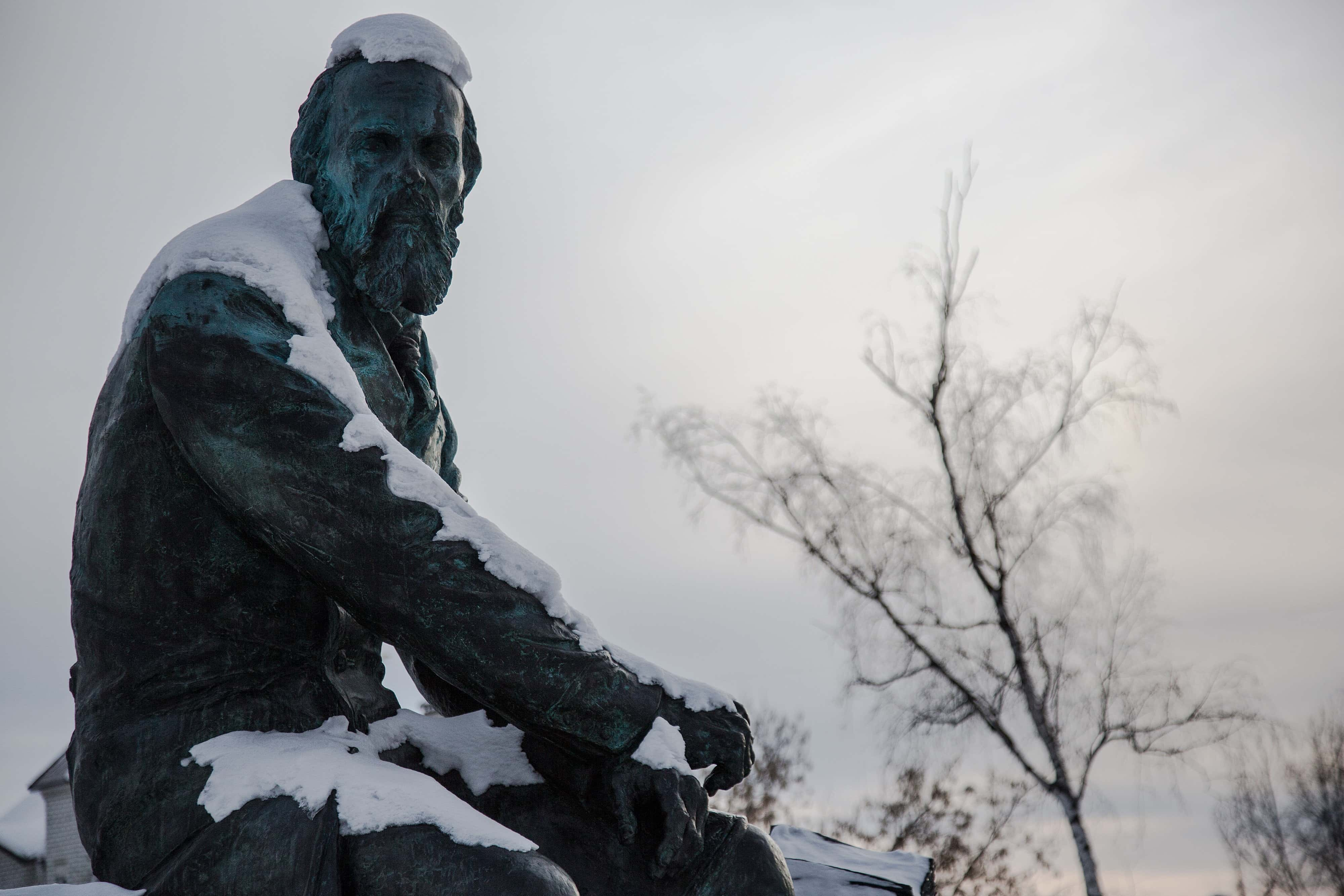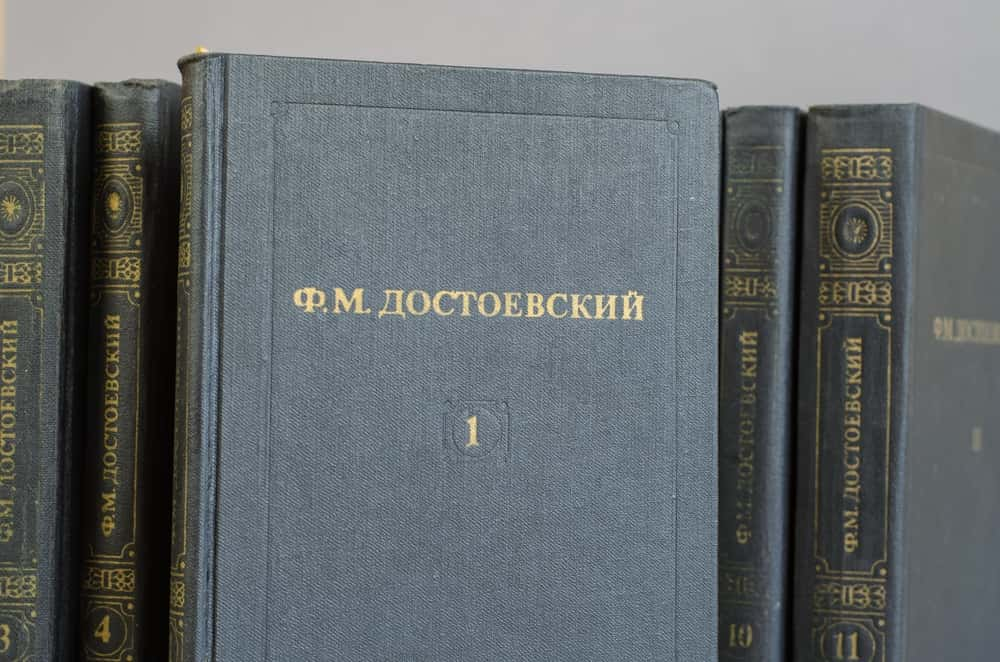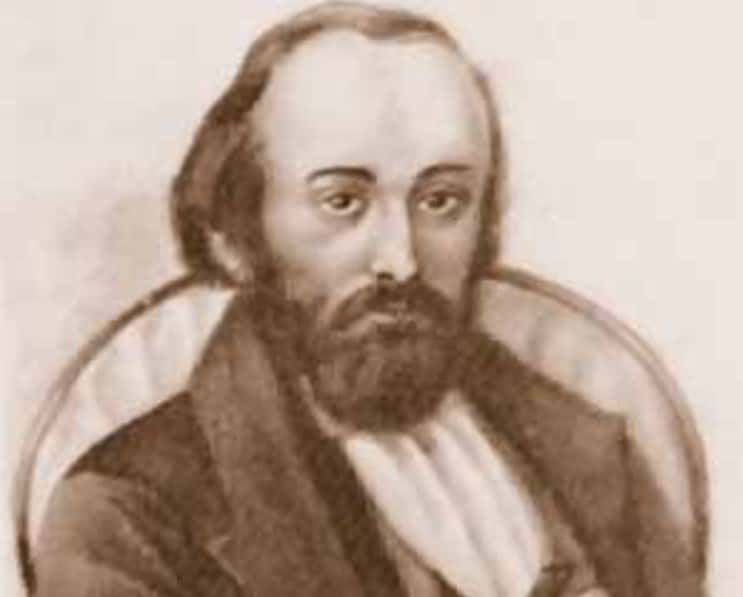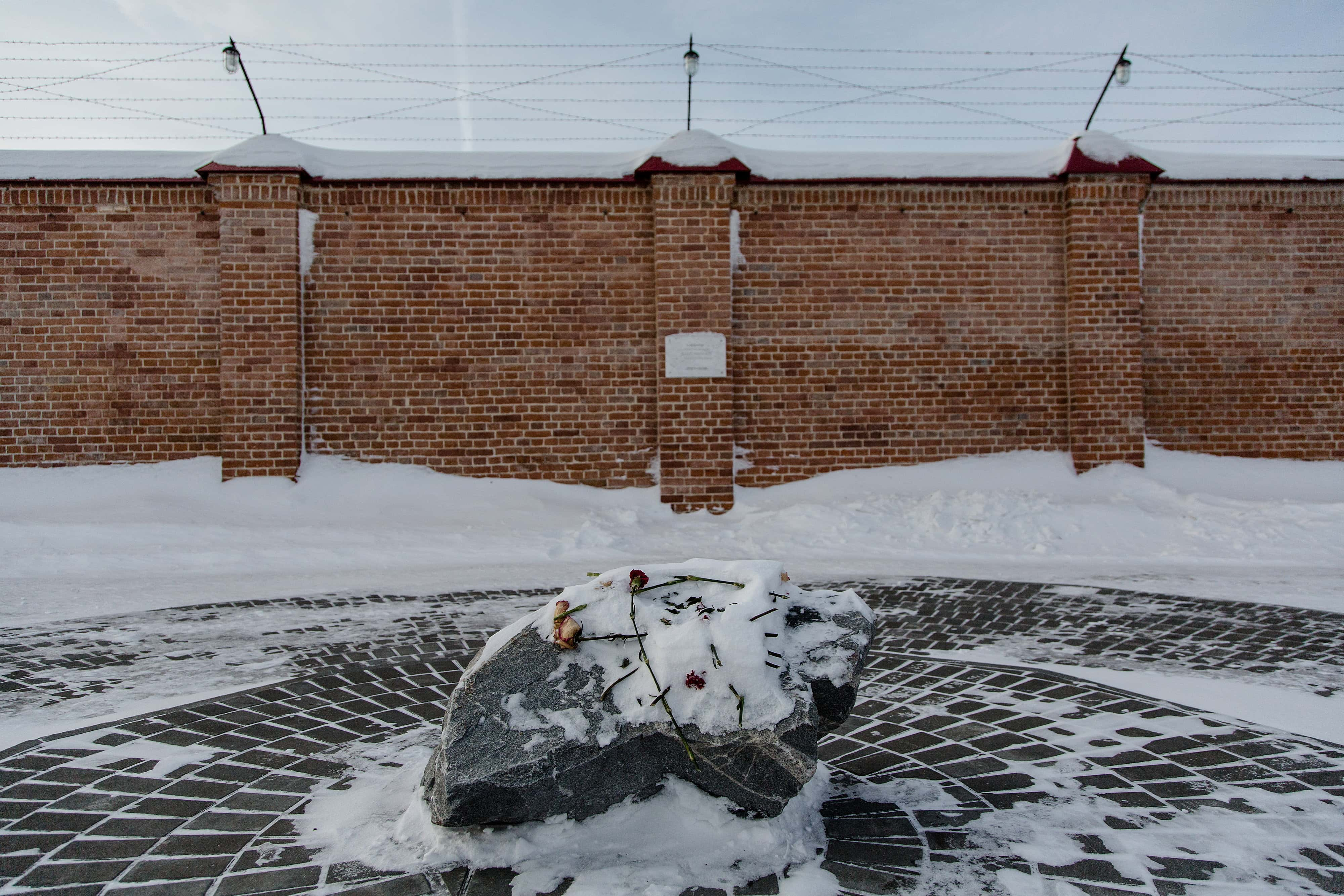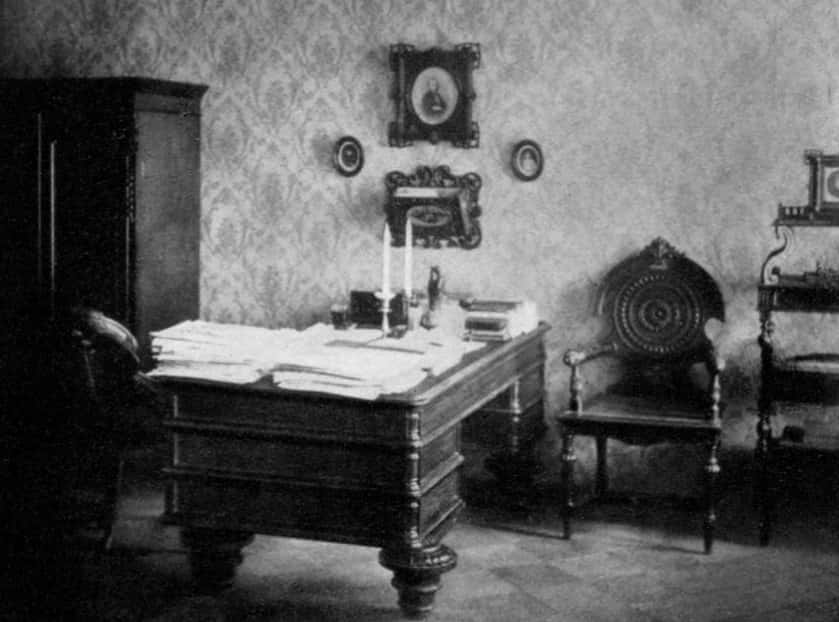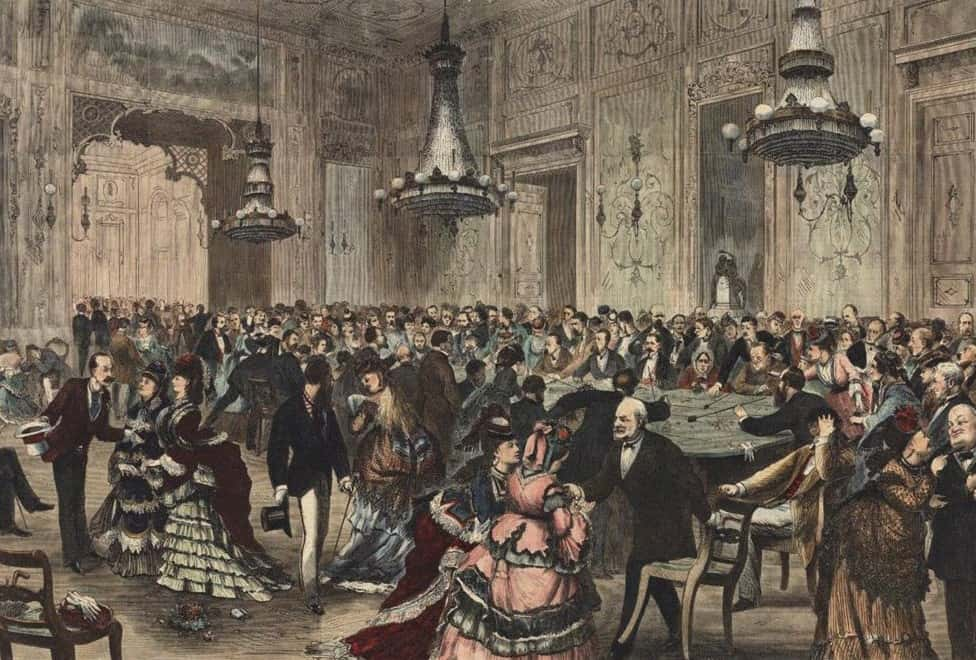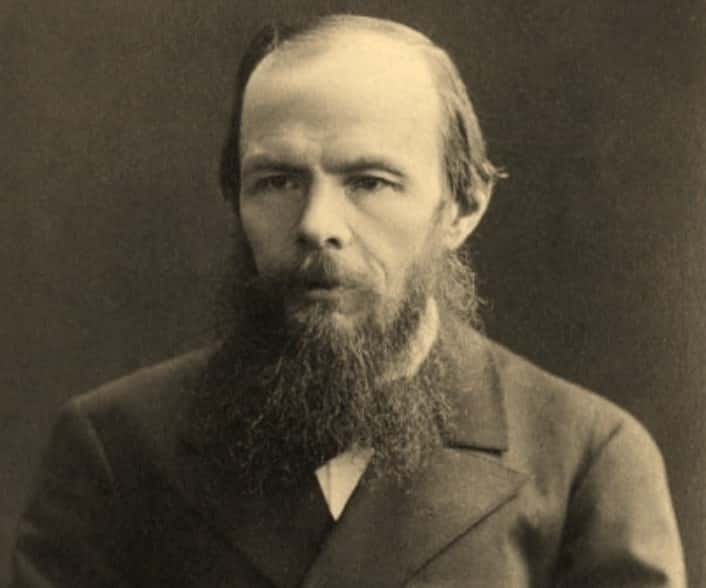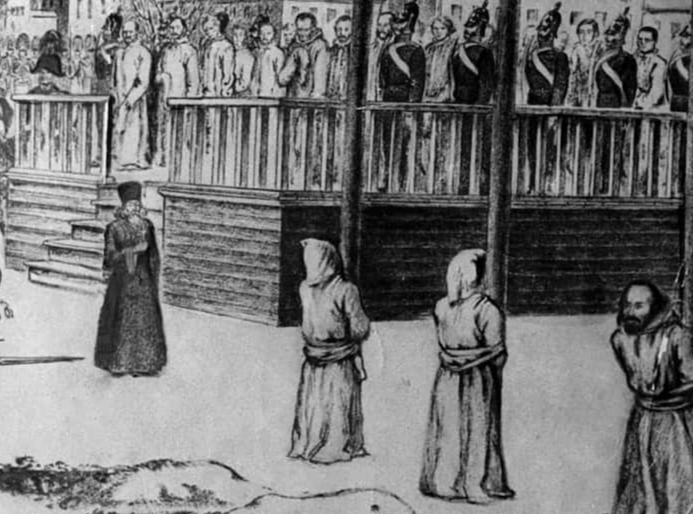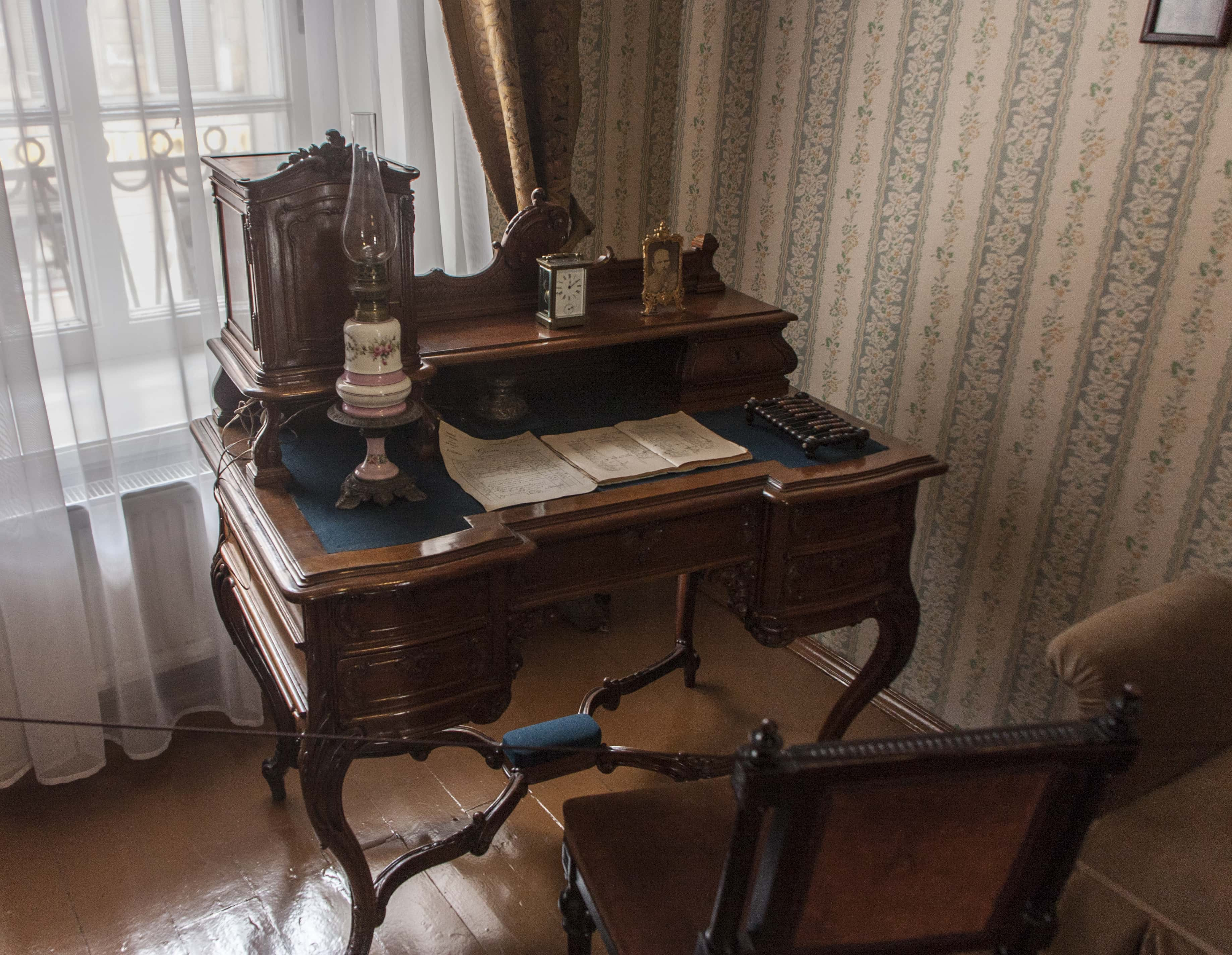When it comes to Russian writers, only Leo Tolstoy can hold a candle to Fyodor Dostoevsky. His books have been translated into more than 170 languages, with millions of copies sold up to the present day. Best known for his examination of human psychology through literary fiction, Dostoevsky is as relevant and inspiring as he was when he first wrote such classics as Crime and Punishment, The Idiot, or The Brothers Karamazov. But what kind of life did this man lead to give him such insight into human nature? Read these facts to find out!
1. …And a Partridge in a Pear Tree!
Dostoevsky’s diverse and memorable literary legacy includes 17 short stories, 11 novels, and three novellas.
2. Welcome to the World
Dostoevsky was born on November 11, 1821, in Moscow. He was the second of eight children born to Dr. Mikhael Dostoevsky and Maria Dostoevskaya.
3. A Writer’s Writer
Long after his death, Dostoevsky continues to be highly praised. Classic writers such as James Joyce, Herman Melville, Franz Kafka, and Ernest Hemingway all declared Dostoevsky was either a strong literary influence or simply a great read. Sigmund Freud even went on to say that Dostoevsky’s The Brothers Karamazov was “the most magnificent novel ever written” (more on that book later).
4. The Odd Boy Out
Although Dostoevsky’s father was a doctor, it was still a financial strain on him to send the young Dostoevsky to boarding school. Moreover, the school was filled with the children of aristocrats, ranking far above young Fyodor in Russian society. This experience was a difficult one for the young Dostoevsky, who was already an introverted youth.
This alienation would eventually inspire him to write his novel The Adolescent.
5. “Saint Fyodor” has a Nice Ring to it
Dostoevsky’s father was a profoundly religious man and passed on this piety to his son. Dostoevsky’s own fascination with religion, as well as his strict moral code, would earn him the nickname “Monk Photius” amongst his classmates. For anyone looking confused, Photius is a highly esteemed saint within the Eastern Orthodox Church.
6. Based on the Novel by…
To give an indication of Dostoevsky’s influence as an author, his novel Crime and Punishment has been adapted into more than 25 different films since it was published. These adaptations were made as far back as 1923, and the productions have been American, Finnish, Russian, German, British, and Japanese. And that’s all from just one book that he wrote!
7. Out of Place
In 1838, Dostoevsky enrolled at the Nikolayev Military Engineering Institute, though he reportedly only managed to get in through family connections. Urged to do so by his father, Dostoevsky was utterly miserable at the academy, having no interest or skills in mathematics or science.
8. Get Me Out of Here
Just like with boarding school, Dostoevsky’s time at the military school was a lonely and isolating experience for him. Although nobody doubted his courage, morals, or generosity, he was still treated as an outsider. One of his few friends would remark that Dostoevsky had less of a military mind than anyone else at the academy, and it could be seen just in how he carried himself. According to said friend, his military gear “lay heavily on him,” as though they were chains binding him down.
9. Knowledge is Power
Both of Dostoevsky’s parents were devoted to literature and tried their best to impart that same appreciation for the written word onto their son. Thanks to private bible lessons from his mother, Dostoevsky was able to read and write by age four. He was also inspired by his nanny, who would teach him traditional sagas and fairy tales in his childhood.

History's most fascinating stories and darkest secrets, delivered to your inbox daily.
10. Might as Well Finish It
Despite his strong dislike for military school, Dostoevsky would stick with it even after the deaths of his parents (more on that later). After graduating as an engineer cadet, Dostoevsky got a job as a lieutenant engineer in 1843.
11. Let’s Get Serious
Dostoevsky was inspired to write his first novel because of his financial struggles. He was a frequenter of the opera, theatre, and ballet, which proved too costly for his jobs as an engineer or translator. Additionally, Dostoevsky was introduced to the world of gambling, which would prove to be a lifelong addiction for him.
All of this, plus his creative mind and love for writing, would lead him to begin his writing career at age 25.
12. Off to a Good Start
Dostoevsky’s first novel was Poor Folk, published in 1846. The book follows two second cousins’ interactions with each other as they describe their lives. The Russian class system is frequently addressed through these characters, as well as the struggles of those in poverty. Poor Folk took Russia by storm, with acclaimed Russian critic Vissarion Belinsky calling it the first “social novel” in Russian literary history.
13. How it Began
Dostoevsky’s family tree has been traced back to the 14th century. One of his ancestors was a Tatar named Aslan Chelebi-Murza. Chelebi-Murza was originally a member of the Golden Horde. However, he would defect to the side of the Russian princes in 1389. One of Chelebi-Murza’s descendants eventually took the surname Dostoevsky from a village called Dostoievo.
14. Ordinary Childhood Adventures
As a child, Dostoevsky lived on the grounds of the Mariinsky Hospital for the Poor, where his father worked. He would regularly interact with the patients as a boy, no doubt influencing his writing years later.
15. Mustn’t Be Burning Bridges!
With the commercial success of his first book in 1846, Dostoevsky was so confident in this new career choice that he resigned from the military entirely. And no, he didn’t do any crazy stunt or trash his office; he wrote a letter of resignation like a sensible person.
16. Sophomore Slump
Dostoevsky's second novel was called The Double. First published in a literary magazine in 1846, The Double is a psychological thriller about a man who meets…take three guesses. While the book had a very mixed response (Dostoevsky himself said that he’d “failed utterly” in writing it), it did receive a film adaptation in 2013 starring Jesse Eisenberg and Mia Wasikowska.
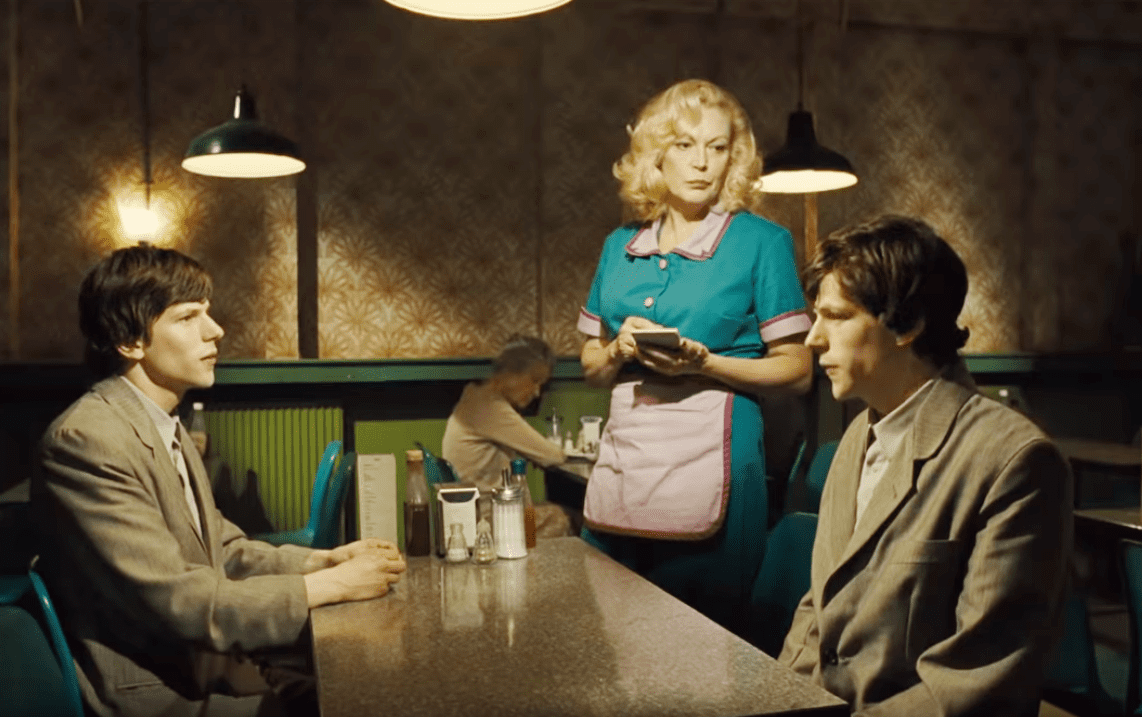 The Double (2013), Alcove Entertainment
The Double (2013), Alcove Entertainment
17. Paving that Road
Dostoevsky is often credited with writing the very first existentialist novel in human history. The novella Notes from the Underground was primarily focused on tackling philosophical questions through the musings of its protagonist. This book would lay the groundwork for such existentialist works as Kafka’s The Trial, Beckett’s Waiting for Godot, and Camus’s The Stranger.
18. Start of an Ideology, End of a Friendship
Like many budding writers, Dostoevsky was drawn to the ideas of socialism, which he discovered around the same time his writing career kicked off. One particular friend that he made during this time was the literary critic Vissarion Belinsky. Belinsky introduced him to many socialist writers. But while Dostoevsky was drawn to socialism’s aim to help the disadvantaged and ensure a just society, he and Belinsky clashed over how religion fit into the picture.
Belinsky’s atheism and Dostoevsky’s following of the Eastern Orthodox Church eventually proved a hurdle too high for the friends to get over, and they would go their separate ways.
19. Did He Also Try Fanfiction?
Dostoevsky’s first ventures into writing weren’t his original writing. He initially began as a translator, taking books written in French and translating them into Russian.
20. Well, We Tried
In 1861, Dostoevsky’s older brother, Mikhael Jr., founded a literary magazine called Vremya. Being close with his brother, Dostoevsky would join Vremya. While he was mainly in an editorial role, he also worked as a columnist and critic for the magazine. Together, the brothers helped make Vremya one of the most popular magazines of its time, with more than 4,000 subscribers.
Sadly, the publication was short-lived due to the brothers’ desire to produce written work that didn’t toe the line or allow itself to be hamstrung. Vremya was banned in 1863.
21. Rough Matrimony
In 1857, Dostoevsky married Maria Dmitrievna Isaeva, his first wife. He also became the stepfather to Isaeva’s son from a previous marriage. Despite the passion that they felt for each other, even Dostoevsky admitted that their marital life was unhappy, and the two of them would often live apart. Isaeva reportedly struggled with the reality of dealing with Dostoevsky’s epileptic fits, and Dostoevsky would have extramarital affairs.
22. Love is Madness
Speaking of those extramarital affairs, one of Dostoevsky’s mistresses was Polina Suslova. Suslova met Dostoevsky through the lectures he was giving by that point, since he was already a highly acclaimed writer in Russia. While one would point to the age difference as a disparity (Dostoevsky being 40 and Suslova being 21), it’s safe to say that they both put each other through the wringer.
Dostoevsky would later describe Suslova as a “sick selfish woman,” though that didn’t stop him from proposing marriage to her after his first wife died. Suslova refused the marriage offer, even though, ironically, she’d spent virtually the entirety of their affair insisting that he separate from his wife to be with her!
23. The Sickness of Dostoevsky
Dostoevsky’s epilepsy was first evidenced when he was a young man in military school. While he had always been pale and gaunt in his appearance, he began to suffer seizures (reportedly the first signs of epilepsy appeared soon after the death of his father). Epilepsy would plague him for the rest of his life, though on the bright side, it was the reason that he was dismissed from an obligatory term in the military. Silver lining?
24. On a High Note
One of the books widely considered to be Dostoevsky’s best was also his last. The Brothers Karamazov took him two years to write, and it was published in 1880. We’ve mentioned how much Freud loved the book, but other people who considered it the best book ever written included Albert Einstein and Nobel Prize-winning author William Faulkner. Dostoevsky would die just four months after its publication.
25. On the Silver Screen Where It Belongs
Besides the several films that have been made out of Dostoevsky’s The Brothers Karamazov, there is also the Russian mini-series made for television. Released in 2009, it has been hailed as being the most faithful adaptation of the book yet made.
 The Brothers Karamazov, Central Partnership
The Brothers Karamazov, Central Partnership
26. Sins of the Father
Dostoevsky’s daughter, Lyubov, would follow in her father’s footsteps and become a writer in her own right. However, of all her written works, the one which is most often cited or referenced is the memoirs she wrote about her life and her father. Being only eleven years old when her father died, Lyubov’s work was based heavily on her mother Anna’s account.
Historians not only find the work to be very subjective (particularly when discussing Dostoevsky’s first wife Maria), but also identify many historical inaccuracies. Though to be fair, how many kids could really be expected to write an accurate and impartial book about their parents?
27. Hard Times
1864 would be a year of great tragedy for Dostoevsky. Not only did his beloved brother, Mikhael Jr., die, but so did his first wife, Maria. Additionally, this was during the height of his gambling addiction, so he was utterly dependent on support from his family and friends while also looking after a stepson and his brother’s bereaved family.
28. Round Two
In 1867, Dostoevsky married Anna Grigoryevna Snitkina after she’d initially been recommended to him as a secretary while he worked on his writing. Although there was an age gap of more than 20 years between them, the two would have four children together and would remain married until Dostoevsky’s death.
29. Fyodor the Fine Fellow
Even while he was languishing in his hard labor sentence, Dostoevsky acquired a reputation for having an open heart. One of his friends from the Petrashevsky Circle, Ivan Yastzhembsky, would credit Dostoevsky’s friendship as the main reason for him resisting the urge to take his own life during those hellish living conditions.
30. Let’s Try the Opposite for Once
One of Dostoevsky’s top-tier books was The Idiot. The novel deals with a protagonist who is a “positively good and beautiful man” with a pure heart. This innocence leads many around him to call him an idiot, even as they seek to manipulate or corrupt him. Rare for the time, Dostoevsky wanted his innocent protagonist to be a serious character rather than a comic one, in order to avoid comparisons to someone like Don Quixote.
31. Well, this is Awkward
One consistent issue brought up by critics of Dostoevsky is the racism displayed within his writing. Though he denied being an anti-Semite, people remain unconvinced due to the consistently negative portrayal of Jewish people within his work. In his letters, he also openly encouraged hatred of Ottoman Turks, especially when Russia went to war with them during his lifetime.
32. Gone but Never Forgotten
After a lifetime of poor health, Dostoevsky died on February 9, 1881, at the age of 59. He was laid to rest in Tikhvin Cemetery near the graves of Nikolay Karamzin and Vasily Zhukovsky, poets whom Dostoevsky had greatly admired in his lifetime. Such was Dostoevsky’s popularity even then that his funeral was attended by tens of thousands of mourners.
One estimate claimed that 100,000 people came out to pay their last respects to the author!
33. Never Forgotten
When Dostoevsky was still a child, he once had to fetch his father to assist a nine-year-old girl in great distress. She had been attacked and raped by a drunk. The memory of that terrifying day was forever burned into Dostoevsky’s memory, as can be evidenced by his writing. He frequently addressed the subject of an older man’s lust for a much younger woman in his stories.
34. What’s the Charge?!
In 1846, Dostoevsky joined a few friends in a group known as the Petrashevsky Circle. This was a group of intellectuals and writers who discussed social reforms which would benefit Russia’s population and systems. Unfortunately, while the group was dismissed by radicals as not being radical enough (or at all, for that matter), the Russian power structure disagreed.
They had everyone in the Petrashevsky Circle arrested for reading subversive and forbidden literature and thus inciting rebellion.
35. Not an Ideal Vacation at All
For the crime of reading literature that the Russian Tsar didn’t like, Dostoevsky would spend four years in exile, performing hard labor in a Siberian prison camp (these camps were a thing long before the USSR). At the end of those four years, he was also meant to serve an obligatory term in the Russian military, but this term was suspended in Dostoevsky’s case (more on that later).
36. Art Inspired by Life
Dostoevsky would spend eight years of his life struggling badly with a gambling addiction until he managed to get it under control by 1871. Even before then, however, Dostoevsky was able to use his personal insight to create a novel which focused on gambling. This book was fittingly titled The Gambler and was released in 1866.
37. Heh, What Can I Say?
Ironically, a large motivation for Dostoevsky to write The Gambler in the first place was because he had large gambling debts to pay! We can only imagine that he saw the humor in that.
38. I Call That a Short Leash!
Even after he completed his sentence of exile and was allowed to return home, Dostoevsky remained under police surveillance for the rest of his life. He even had to earn back the right to publish books and get married!
39. Fyodor the Orphan
Dostoevsky’s mother died of tuberculosis on September 27, 1837. His father would die on June 16, 1839. Officially, Dr. Mikhael's cause of death was an apoplectic stroke, but one of his neighbors accused Mikhael’s serfs of killing him. Despite the accusation, the serfs were cleared of all charges in a subsequent trial.
40. What a Crook!
You might be a bit confused as to why the neighbor of Dostoevsky’s father would be so concerned about the cause of death that he would accuse the serfs of killing him. It was hardly anything to do with charity or a sense of justice. The serfs living on that land stood in the way of the neighbor acquiring the land for himself, and having them deported for a crime would have given him a clear field.
Incredibly, Dostoevsky’s younger brother, Andrei, would back up the neighbor’s claims that his father was murdered.
41. Near Death
Before he was ever sent to Siberia, Dostoevsky and the other members of the Petrashevsky Circle were sentenced to death by firing squad. On December 23, 1849, Dostoevsky was taken to be shot along with a few of his other comrades. For twenty minutes, he faced a line of men with guns and was confronted head-on with his own mortality. The execution was stayed after those twenty minutes, with a message from the Tsar condemning the men to exile instead.
In case you’re curious what those twenty minutes must have felt like, Dostoevsky did eventually write about it (more on that later).
42. This is Me
While he himself was self-critical over The Idiot's chaotic structure, Dostoevsky nevertheless considered the book to be his favorite among the ones he’d written. It was also a very personal story for him to write, as his protagonist not only suffers from epilepsy, but he discusses in great detail witnessing a mock execution which plays out very much like what happened to the writer himself.
It makes that passage all the more difficult to read when you realize which perspective Dostoevsky experienced!
43. The Siberia Redemption
Dostoevsky would write in great length about his experiences in a Siberian prison camp. The House of the Dead explored ghastly crimes committed by the prison guards against the prisoners, but also equally horrid crimes committed by prisoners against each other. It wasn’t all negative, though. Dostoevsky also met people who were overall good-hearted in a terrible situation.
His determination to address all the sides of a complicated issue meant that his writing was all the more enriched.

